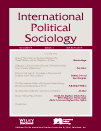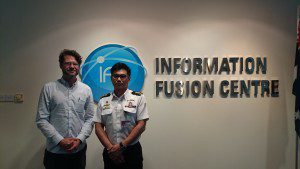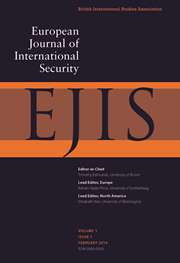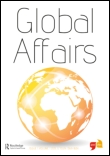 Over the last two days, I had the pleasure to attend the fourth installment of the Hudson Conference on Maritime Crime and Development, jointly organized by the Royal Navy and the Global Directions Program of Merton College, Oxford University. Over the years the two day conference has become a major format for the discussion between navies and academics on the challenges that the new maritime security agenda poses (a summary of last years event is available on Piracy-Studies.org).
Over the last two days, I had the pleasure to attend the fourth installment of the Hudson Conference on Maritime Crime and Development, jointly organized by the Royal Navy and the Global Directions Program of Merton College, Oxford University. Over the years the two day conference has become a major format for the discussion between navies and academics on the challenges that the new maritime security agenda poses (a summary of last years event is available on Piracy-Studies.org).
This year’s edition was on maritime security governance. Bringing together Royal Navy officers, academics, and representatives from various NGO’s and International Organizations the various ways that maritime security is governed were discussed. The focus was on the one side how maritime insecurities and threats, such as piracy, smuggling or fishery crimes rely on informal governance mechanisms which make them particularly difficult to address. On the other side the discussion concerned the governance of responses, ranging from problems of capacity building, to the regulation of private security companies and the shipping industry. In particular the discussion concerned the question of how one can cope with the flag state provisions of UNCLOS and the problem of open registries.
At the conference I presented my latest research based on the field work I am currently doing in Singapore. My presentation was titled “Maritime Domain Awareness – a key enabler? The South East Asian Experience”. In the paper I reflect on the challenges of the Maritime Domain Awareness (MDA) agenda poses and argue against understanding these in purely technical terms. MDA is a form of informal maritime security governance. MDA systems are socio-political-technical assemblages par excellence and as such they imply new forms of security governance. In the paper (available on request, but forthcoming soon) I discuss a range of social and political problems of achieving what MDA promises: to coordinate maritime security responses across states and agencies by developing a shared understanding of what happens at sea and what requires action. As discussed in my recent blogs on the Singaporian MDA centers ISC and IFC, in South East Asia we find an interesting three-center system that might become a role model for other regions in various ways.






